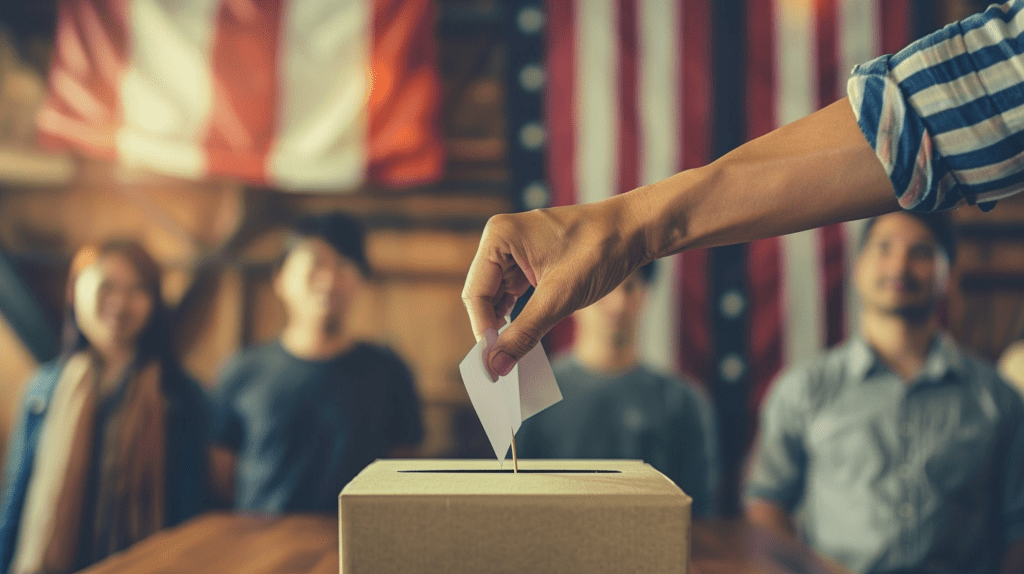Election denialism, the refusal to accept credible election outcomes, has significantly impacted U.S. history, especially in recent years. This phenomenon is not entirely new; election denial has roots that stretch back through various periods of American history. However, its prevalence and intensity have surged in the contemporary digital and political landscape, influencing public trust, political discourse, and the very fabric of democracy.
Historical context
Historically, disputes over election outcomes are as old as the U.S. electoral system itself. For instance, the fiercely contested 1800 election between Thomas Jefferson and John Adams resulted in a constitutional amendment (the 12th Amendment) to prevent similar confusion in the future. The 1876 election between Rutherford B. Hayes and Samuel J. Tilden was resolved through the Compromise of 1877, which effectively ended Reconstruction and had profound effects on the Southern United States.
Yet these instances, while contentious, were resolved within the framework of existing legal and political mechanisms, without denying the legitimacy of the electoral process itself. Over time, claims of election fraud would come to be levied against the electoral and political system itself — with dangerous implications for the peaceful transfer of power upon which democracy rests.

The 21st century and digital influence
Fast forward to the 21st century, and election denialism has taken on new dimensions, fueled by the rapid dissemination of disinformation (and misinformation) through digital media and a polarized political climate. The 2000 Presidential election, with its razor-thin margins and weeks of legal battles over Florida’s vote count, tested the country’s faith in the electoral process.
Although the Supreme Court‘s decision in Bush v. Gore was deeply controversial, Al Gore’s concession helped to maintain the American tradition of peaceful transitions of power.
The 2020 Election: A flashpoint
The 2020 election, marked by the COVID-19 pandemic and an unprecedented number of mail-in ballots, became a flashpoint for election denialism. Claims of widespread voter fraud and electoral malfeasance were propagated at the highest levels of government, despite a lack of evidence substantiated by multiple recounts, audits, and legal proceedings across several states.
The refusal to concede by President Trump and the storming of the U.S. Capitol on January 6, 2021, marked a watershed moment in U.S. history, where election denialism moved from the fringes to the center of political discourse, challenging the norms of democratic transition. Widely referred to as The Big Lie, the baseless claims of election fraud that persist in the right-wing to this day are considered themselves to be a form of election fraud by justice officials, legal analysts, and a host of concerned citizens worried about ongoing attempts to overthrow democracy in the United States.
Implications, public trust, and voter suppression
The implications of this recent surge in election denialism are far-reaching. It has eroded public trust in the electoral system, with polls indicating a significant portion of the American populace doubting the legitimacy of election results. This skepticism is not limited to the national level but has trickled down to local elections, with election officials facing threats and harassment. The spread of misinformation, propaganda, and conspiracy theories about electoral processes and outcomes has become a tool for political mobilization, often exacerbating divisions within the American society.
Moreover, election denialism has prompted legislative responses at the state level, with numerous bills introduced to restrict voting access in the name of election security. These measures have sparked debates about voter suppression and the balance between securing elections and ensuring broad electoral participation. The challenge lies in addressing legitimate concerns about election integrity while avoiding the disenfranchisement of eligible voters.
Calls for reform and strengthening democracy
In response to these challenges, there have been calls for reforms to strengthen the resilience of the U.S. electoral system. These include measures to enhance the security and transparency of the voting process, improve the accuracy of voter rolls, and counter misinformation about elections. There’s also a growing emphasis on civic education to foster a more informed electorate capable of critically evaluating electoral information.
The rise of election denialism in recent years highlights the fragility of democratic norms and the crucial role of trust in the electoral process. While disputes over election outcomes are not new, the scale and impact of recent episodes pose unique challenges to American democracy. Addressing these challenges requires a multifaceted approach, including legal, educational, and technological interventions, to reinforce the foundations of democratic governance and ensure that the will of the people is accurately and fairly represented.
Comments are closed.